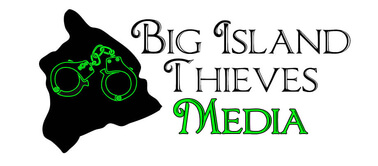
Hawai‘i County Mayor Mitch Roth and the Hawai‘i Community Foundation (HCF) on Jan. 7 announced the launch of the Puna Strong grants program with funding from the County’s Kīlauea disaster recovery funds and HCF’s Hawai‘i Island Volcano Recovery Fund. The focus of Puna Strong will be on building community resilience for the Puna communities impacted by the 2018 Kīlauea eruption on Hawai‘i Island with a $350,000 investment in nonprofit organizations and partnerships leading community-driven projects.
“This partnership between Hawai‘i Community Foundation and Hawai‘i County represents a new way of working together across sectors for a common goal of building a resilient and vibrant community,” said Mayor Roth.
Puna Strong has a community-based disaster management approach that values the knowledge and capacities of residents and builds on local resources, including social capital, and aims to increase community resilience. Community resilience is the ability for the community to efficiently use available resources to respond to, withstand, and recover from adverse situations such as the Kīlauea eruption of 2018.
“From the aftermath of the volcano eruption, we saw how the people of Hawai‘i Island rose up to strengthen, rebuild and heal the community,” said Diane Chadwick, HCF’s director of community philanthropy on Hawai‘i Island. “We are excited to work with Hawai‘i County to continue supporting this community so that they feel ready and empowered to take on future challenges.”
The four-month-long eruption destroyed hundreds of homes and severely impacted area farms, and public and private infrastructure. It coincided with the end of the 35-year-long Pu‘u ‘Ō‘ō eruption that also significantly impacted the region.
In May 2018, HCF, alongside Anderson-Beck Fund, Jack’s Fund and the Darrin & Darien Gee Family Fund, established the Hawai‘i Island Volcano Recovery Fund to assist with recovery efforts of those impacted by the Kīlauea volcano eruption.
“Puna Strong is another thoughtful, strategic tool designed to help residents take action,” said Council Member Ashley Kierkiewicz. “I’m excited about the opportunity for community to pilot initiatives or scale up programs that make a positive difference, helping Puna on its journey to heal and bounce forward.”
Recently released by Hawai‘i County, the Kīlauea Recovery and Resilience Plan describes the community resilience strategy that will guide grantmaking under Puna Strong. This strategy aims to:
- Build networks and community capacity
- Invest in revitalization efforts to support disaster resilience
- Promote economic growth
- Identify areas for natural and cultural resource management and agriculture development
- Improve access to goods and services
Grants and technical support will be made to nonprofit organizations with a 501c3 tax status, as well as partnerships that connect nonprofit organizations and community groups taking action on community resilience. HCF encourages organizations and individuals from the communities of Puna to reach out and explore potential projects or initiatives to be considered for funding. Please contact Diane Chadwick at dchadwick@hcf-hawaii.org or 808-938-8533 to discuss potential projects, and with any questions. Letters of interest will also be accepted and can be submitted to Diane Chadwick at dchadwick@hcf-hawaii.org by Feb. 15, 2021. Please include the name of the nonprofit organization and partners, contact information, and a brief description of the project or program that addresses the community resilience focus of Puna Strong. Inquiries will be followed up with by a member of HCF’s Hawai‘i Island team.
About Hawai‘i Community Foundation
With over 100 years of community service, the Hawai‘i Community Foundation (HCF) is the leading philanthropic institution in the state. HCF is a steward of more than 950 funds, including more than 280 scholarship funds, created by donors who desire to transform lives and improve communities. In 2019, HCF distributed more than $63 million in grants and contracts statewide, including more than $7 million in scholarships. HCF also serves as a resource on community issues and trends in the nonprofit sector.



